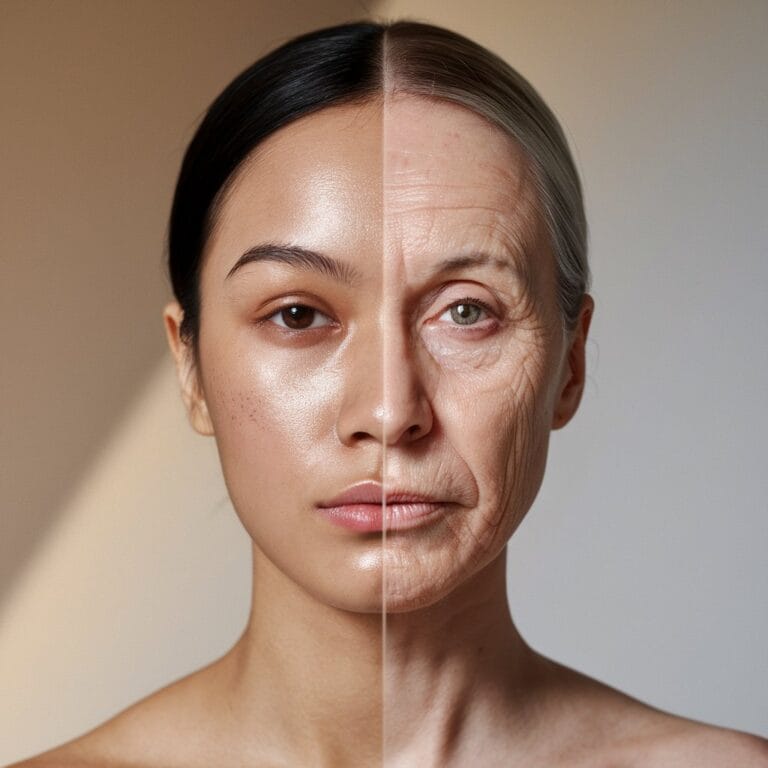FREE SHIPPING OVER $50
What Happens if You Stop Eating Sugar for 30 Days?
Sugar has crept into our diets like an uninvited guest, charming us with its sweetness but often leaving us with unexpected consequences. Many contemplate the impact of a sugar-free lifestyle, especially when considering giving up sugar for 30 days. In this exploration, we will unveil the transformations that occur when you eliminate sugar from your diet.
Understanding Sugar: The Good and the Bad

Sugar might seem harmless, but our bodies process it differently than we think. When consumed in excess, sugar transforms from a delightful treat to a lurking villain, contributing to various health issues. By embarking on the journey of no sugar for 30 days, you will understand your body better and rediscover what it means to nourish yourself.
Physical Changes in Your Body
What happens if you stop eating sugar for 30 days? The results might astonish you. Within the first few days of quitting sugar, many experience withdrawal symptoms akin to those of quitting caffeine. This detox phase can be uncomfortable, but it’s a sign that your body is adjusting to a new norm.
Around the week mark, energy levels often stabilize. Instead of the familiar sugar-induced energy spikes followed by crashes, you’ll notice more consistent energy throughout the day. Your mood may also brighten as sugar withdrawal gives way to a more balanced emotional state.
Additionally, the risk of chronic diseases diminishes. Studies suggest that a diet high in sugar can lead to obesity, heart disease, and diabetes. By eliminating sugar, you’re actively reducing that risk.
Mental and Emotional Transformations
The benefits of no sugar for 30 days extend beyond physical changes. Sugar can impact our mental health, contributing to anxiety and depression. How does giving up sugar for 30 days influence your mood? You might find that your anxiety levels decrease as your body begins to stabilize, leading to a clearer mind and more balanced emotions.
Many report improved concentration after the initial detox phase. This newfound clarity can feel like lifting a fog that has clouded your thoughts. Imagine waking up refreshed and ready to tackle the day without the need for a sugar fix!
The Ripple Effect on Your Diet
By choosing to quit sugar for 30 days, you’ll likely find yourself more aware of your overall food choices. You’ll seek healthier alternatives, replacing sugary snacks with fruits, nuts, and other nourishing options. This shift creates a ripple effect, leading to a more balanced diet and better nutritional habits.
Instead of reaching for that candy bar during afternoon slumps, you might enjoy a piece of fruit. Not only does this satisfy cravings but it also provides essential vitamins and minerals your body craves.
Weight Management and Body Composition
One of the most common motivations for giving up sugar is weight loss. While results can vary from person to person, many report noticeable changes in body composition after just 30 days. By eliminating sugar, you’re also cutting empty calories, paving the way for gradual and sustainable weight loss.
As bodily inflammation decreases, you may notice your clothes fitting better as well. Less bloating and improved digestion often accompany the sugar withdrawal process. You might even find that your cravings for unhealthy foods significantly lessen, making maintaining your new lifestyle easier.
Long-Term Health Benefits
The no sugar for 30 days results go far beyond temporary changes. Continued avoidance of sugar can lead to long-term benefits. Your risk for chronic diseases decreases, while improved heart health and better insulin sensitivity become a reality. Several studies point to the benefits of reducing sugar intake, suggesting a lifestyle change could lead to significant health improvements over time.
This transformation isn’t just a sprint—it’s a marathon. Maintaining a low-sugar diet can set you up for a lifetime of health and well-being. Your body will thank you in ways that might surprise you.
Potential Challenges on Your Journey
Of course, the path to eliminating sugar isn’t without hurdles. Cravings can hit hard, especially during the early days. It’s essential to prepare yourself for these moments. Keeping healthy snacks on hand can help you resist temptation.
Additionally, social settings can pose a challenge. Friends and family might question your decision or tempt you with sugary desserts. Staying committed to your decision will require strength and perseverance. Remind yourself of the benefits you’ve experienced so far, and they can help you push through.
Benefits of No Sugar for 30 Days
Giving up sugar for a month can lead to a variety of positive changes:
- Reduced Risk of Type 2 Diabetes: Lowering sugar intake can improve insulin sensitivity and reduce the risk of developing diabetes.
- Improved Dental Health: Fewer sugary snacks mean fewer cavities and healthier gums.
- Enhanced Energy Levels: Steadier blood sugar levels lead to more consistent energy throughout the day.
- Better Skin Appearance: Cutting out sugar can reduce acne breakouts and promote clearer skin.
- Weight Loss: Less sugar often translates to fewer empty calories and can aid in shedding excess weight.
- Improved Mood: Stable blood sugar levels can reduce mood swings and promote a more balanced emotional state.
- Better Sleep Quality: Reduced sugar intake can lead to improved sleep patterns and deeper rest.
- Reduced Cravings for Sweets: Over time, cravings for sugary foods often diminish, making it easier to maintain a healthier diet.
Drawbacks of No Sugar for 30 Days
While the benefits are compelling, there are some challenges to consider:
- Initial Sugar Cravings and Withdrawal Symptoms: Many experience headaches, irritability, and intense cravings in the first few days without sugar.
- Changes in Taste Preferences: Taste buds may need time to adjust to less sweetness, affecting the enjoyment of some foods initially.
- Potential Nutrient Deficiencies: If not carefully planned, a sugar-free diet may lack certain nutrients found in fruits and other natural sugars.
- Increased Focus on Food Choices: Planning meals without added sugars may require more attention to ensure balanced nutrition.
- Temporary Decrease in Athletic Performance: Athletes, especially those in high-intensity sports, may notice a temporary dip in performance without quick sugar sources.
The Power of Mindset
As you navigate through the no sugar for 30 days adventure, your mindset plays a crucial role. Embrace the journey as an opportunity for growth. Instead of viewing this as a restriction, consider it a personal challenge. Celebrate small victories along the way, whether that’s resisting a sugary treat or discovering a delicious, sugar-free recipe.
Mindfulness also plays a key role in maintaining a low-sugar lifestyle. Pay attention to how your body responds to different foods. This awareness will help you make better choices moving forward, ensuring that you’re not just cutting sugar but also tuning into your body’s needs.
Conclusion
Quitting sugar for 30 days may seem daunting, but the results can lead to a lifetime of better choices. As you embark on this adventure, remember that every small step counts. By embracing the journey, you open yourself up to a world of health, vitality, and well-being.
Related Articles
If you found this blog post insightful, explore more by delving into our related articles:







